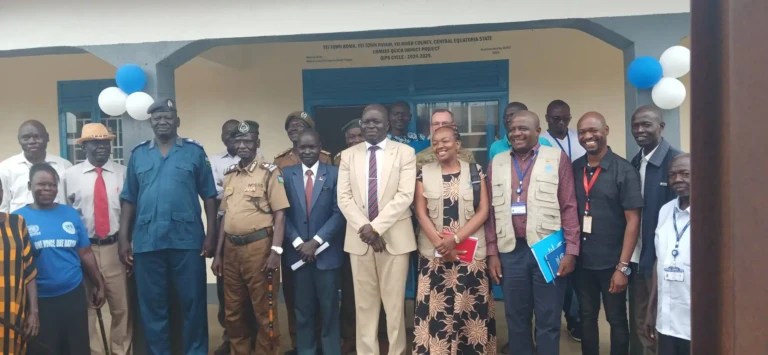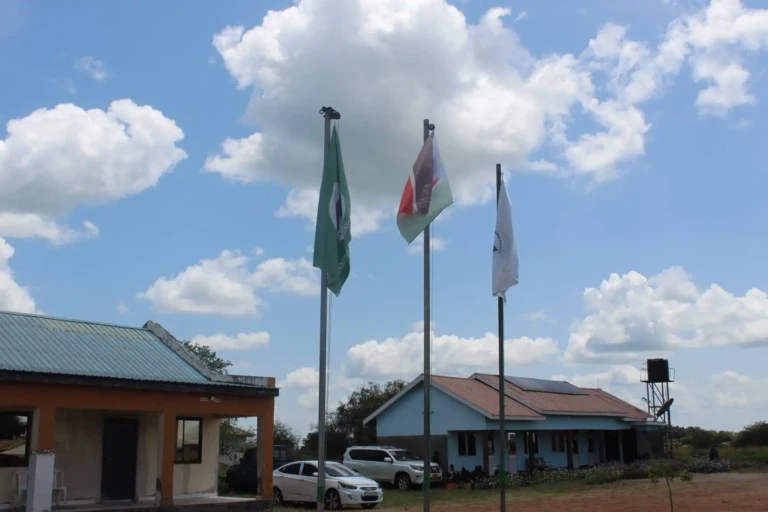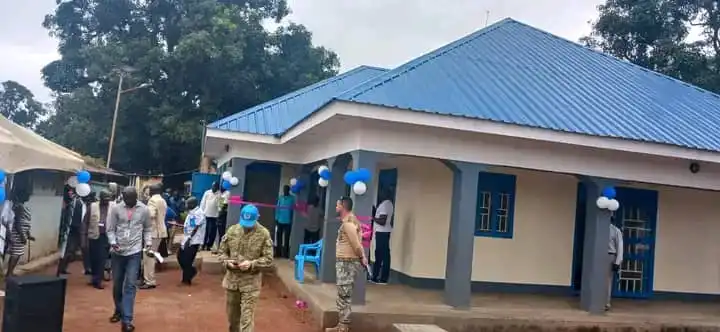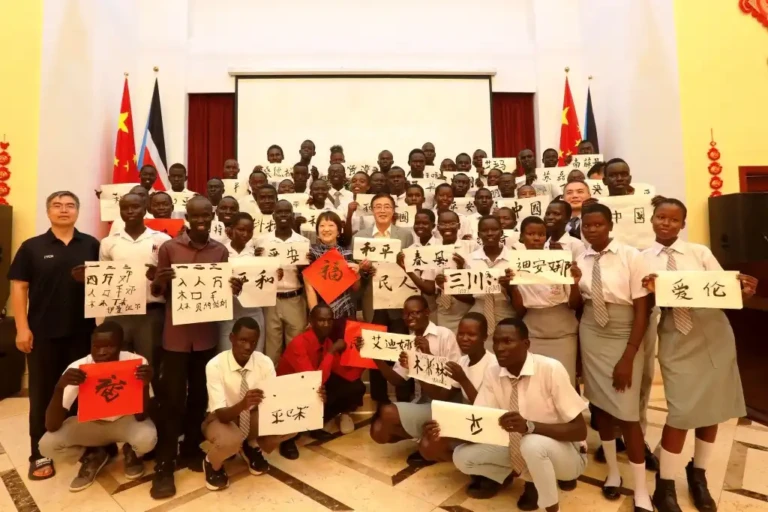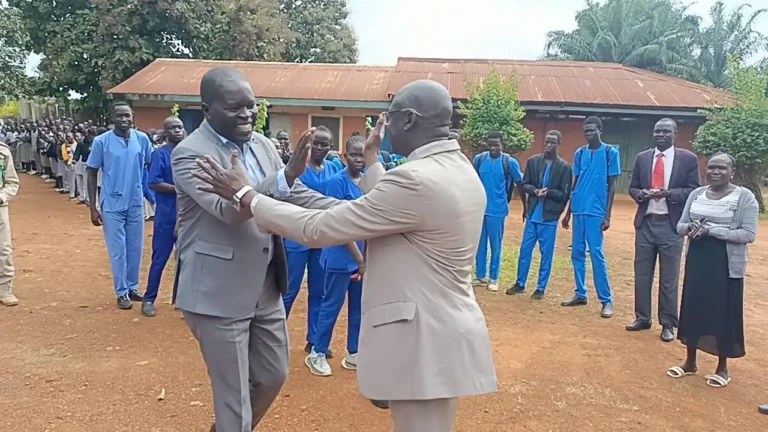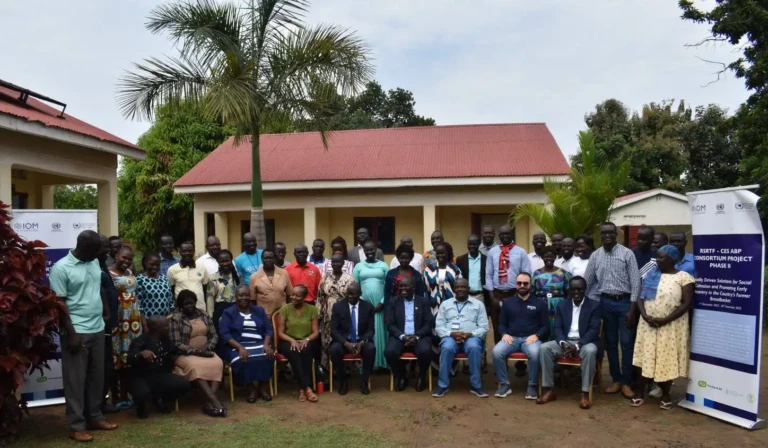Rights Experts Challenge US Deportations to Africa

(JUBA) – The government of South Sudan is facing growing scrutiny from international human rights groups following the recent deportation of foreign nationals from the United States to its capital, Juba. The deportations form part of a broader US strategy to send convicted criminals to third countries when their home states refuse to accept them, but legal experts argue the approach may breach international law.
Last month, the United States deported 12 individuals to Eswatini and South Sudan. One of them was a South Sudanese citizen returned to his country of origin, while others were not nationals of either destination. Legal challenges have since emerged, questioning whether the migrants were given the opportunity to challenge their removal, particularly on safety grounds.
International law permits third country deportations only under strict conditions. One key principle is non-refoulement, which prohibits returning people to places where they may face danger or persecution. This includes both a person’s home country and any third country involved. Experts argue that deporting individuals to South Sudan, currently flagged by the US State Department as unsafe due to ongoing conflict, insecurity, and poor detention conditions raises significant concerns.
Legal proceedings to stop at least one of the deportation flights were already underway when the aircraft had taken off in May. A US district court judge ruled that the migrants had not been allowed to challenge their removals. The flight was diverted to Djibouti, where the deportees were reportedly held temporarily in a US military facility. The case later reached the US Supreme Court, which allowed the deportation to proceed, but did not rule on whether South Sudan was a safe destination.
Dr Alice Edwards, the UN Special Rapporteur on Torture, warned that the timing and process of these deportations were flawed. “They were already en route to a US military base when proceedings were still being heard. That is deeply problematic,” she said. She added that due process was essential, especially when deportees risk mistreatment or poor conditions in destination countries.
Professor David Super of Georgetown University said there was no evidence that the migrants received proper legal review before being sent to Juba.
“South Sudan and Eswatini both have troubling human rights records. Sending individuals there without safeguards could violate international law,” he told the BBC.
In Juba, the deportees are reportedly being held in a government run detention facility, though officials have not publicly confirmed the location or conditions. Local political activist Agel Rich Machar said the facility is known for poor standards. There is no official word on how long the detainees will remain in custody or whether they will eventually be released into the community.
The rationale behind South Sudan’s decision to accept the deportees remains unclear. The government has publicly cited its strong diplomatic ties with the United States. Analysts suggest that economic and political incentives may be involved. In April, the US announced it would revoke visas issued to South Sudanese nationals after Juba initially refused to accept a deportee. The policy was reversed after the deportation went ahead.
There is also speculation that South Sudan’s cooperation with the US is linked to its desire for Washington to lift sanctions on Vice-President Benjamin Bol Mel. The US government imposed sanctions on Bol Mel in 2021 due to alleged corruption and renewed them earlier this year.
Elsewhere, Eswatini officials have confirmed that deportees sent there are being held in correctional facilities. A government spokesperson said the migrants would be repatriated with assistance from the International Organization for Migration (IOM), though no specific timeline has been provided.
However, the agreement has attracted backlash within Eswatini. The country’s largest opposition party, the People’s United Democratic Movement (Pudemo), condemned the arrangement, calling it “human trafficking disguised as a deportation deal.” Activists argue that Eswatini should not be used as a “dumping ground” for foreign convicts.
In the United States, rights advocates have warned that the deportations may set a troubling precedent. Professor Ray Brescia of Albany Law School said the Supreme Court’s green light could encourage future deportations to proceed before migrants have had a chance to appeal.
“It takes time and access to a lawyer to fight these removals, and that is often not available,” he said.
The US administration has defended the deportations, saying the individuals had committed serious crimes, including murder, sexual assault, and child rape. However, critics argue that even serious offenders are entitled to legal protections under international law, particularly if they risk harm upon return.
South Sudan, one of the world’s youngest and poorest nations, continues to face major challenges related to governance, security, and service delivery. Its capacity to manage deportees, especially those with no ties to the country, is uncertain.
Despite the concerns, US officials are reportedly approaching other African countries to enter similar deportation arrangements. In contrast, Nigeria recently rejected a request to accept Venezuelan deportees, with Foreign Minister Yusuf Tuggar saying, “We have enough problems of our own.”
While the financial and diplomatic incentives for accepting deportees remain secret, past US deportation deals have included aid, military cooperation and security packages. In March 2025, reports emerged that El Salvador would receive $6 million (around 27.6 billion SSP) from the US to accept deported Venezuelans.
Got a story to share?
Help us cover the stories that matter. Send your news tip via WhatsApp: +211 927 588 870 or email: news [at] radioyei.org.
Tap, read, know — Access Radio on WhatsApp
You can also write or contribute here.
Studio Line: MTN: +211(0)925300888
Studio Line: Zain: +211(0)910300888
Advertise Local. Reach Wider.
Partner with Access Radio for online and on air adverts.
+211 927 588 870 (Call or WhatsApp)
Keep Local Voices Strong.
Support community journalism with a donation to Access Radio
Related
Discover more from Access Radio Yei News
Subscribe to get the latest posts sent to your email.

